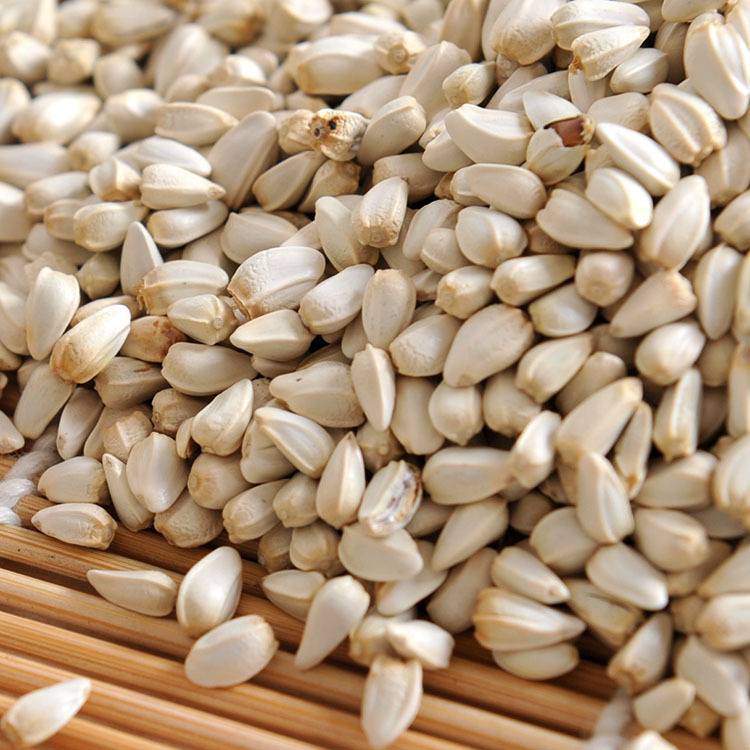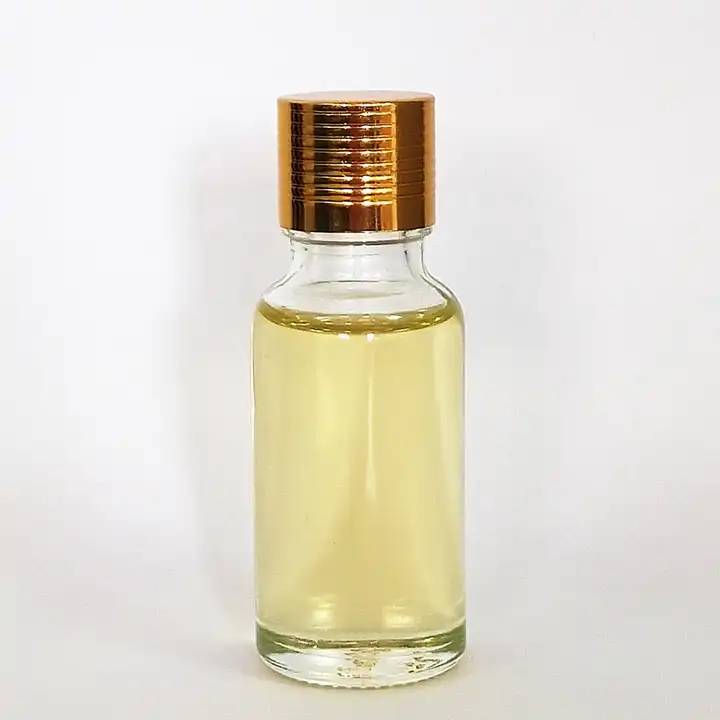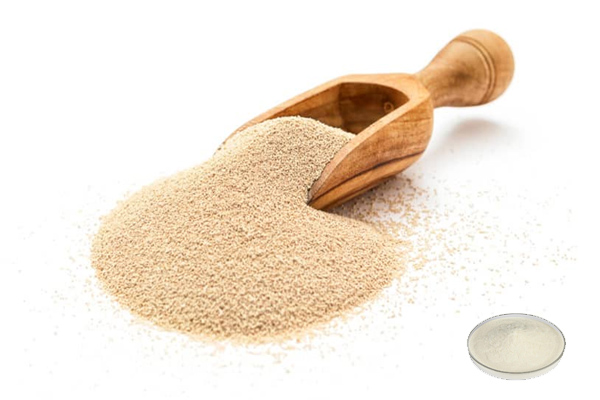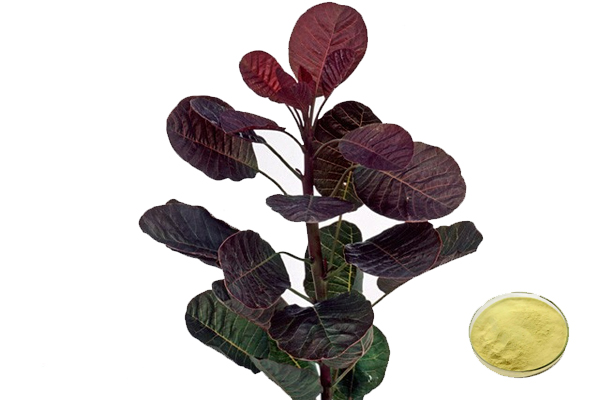Conjugated Linoleic Acid-Triglyceride 78%
Product Name:Conjugated Linoleic Acid-Triglyceride
Source:Safflower Seed
Assay:78%
Appearance:Clear Pale Yellow Oily Liquid
Testing Method:HPLC
Pesticide Residue:Comply with (EC) No 396/2005 Standard
- Description
- Data Sheet
- Certificate
-
What is Conjugated Linoleic Acid-Triglyceride?
Conjugated linoleic acid glyceride (CLAG) is the glyceride type ofConjugated Linoleic Acid (CLA). The naturally occurring CLAG is commonly found in ruminant animals, such as milk and beef. Although Conjugated linoleic acid glyceride (CLAG) is an essential functional fatty acid for the human body, it cannot be produced by the human body itself. The preparation of Conjugated Linoleic Acid (CLA) often uses vegetable oils (such as sunflower seed oil and peanut oil), but the best source is safflower seed oil (traditional Chinese medicine safflower) because safflower has the highest content or strongest activity of Conjugated linoleic acid glyceride (CLAG).
Conjugated Linoleic Acid Glycerides is made from food grade safflower seed oil, in which the linoleic acid is converted into conjugated linoleic acid by conjugation reaction. Then the conjugated linoleic acid fatty acid is esterified with glycerol using food grade lipase as catalyst to produce conjugated linoleic acid glycerides.
The Conjugated Linoleic Acid Triglyceride 78% supplied by Green Spring Technology is a clear light yellow oily liquid. The odor and taste are gentle, and it has excellent lipophilicity. The acid value of the product is very low, and compared to ordinary fats, its antioxidant stability is better. It can be used to make soft capsules for consumption, and can also be directly and widely added to dairy products, edible oils, and emulsified fat products.
Green Spring Technology has been specializing in the production of plant extracts for 23 years, with an excellent R&D team, a professional production team, and an experienced sales team. It has passed Halal, Kosher, COSMOS, BRC, IFS, FDA, ISO and many other certifications. Green Spring has a systematic quality management system, which is strictly implemented, and organizes production in accordance with ISO, HACCP, and other quality standards. All products are traceable, and each product from the raw material to finished product has detailed testing, and production reports, to ensure that every link in the production process can be controlled and checked. Authoritative third-party test reports are available.
Specification:
Product Name
Conjugated Linoleic Acid-Triglyceride
Latin Name
Carthamus Tinctorius L.
CAS No.
2420-56-6
Source
Safflower Seed
Assay
78%
Testing Method
HPLC
Appearance
Clear Pale Yellow Oily Liquid
Pesticide Residue
Comply with (EC) No 396/2005 Standard
Regulations:
It conforms to EU regulations.
Looking for a Quotation?Benefits:
Promotes Lipolysis and Metabolism
Studies have shown that Conjugated Linoleic Acid-Triglyceride increases the activity of carnitine palmitate transferase (the enzyme responsible for the hydrolysis of fats for release into the bloodstream) and decreases the activity of lipoprotein lipase (responsible for the absorption of fats). Conjugated Linoleic Acid Triglyceride helps with fat breakdown and protein synthesis, which is a boost for fat loss and muscle gain.
Seventeen clinical studies have demonstrated that Conjugated Linoleic Acid at doses ranging from 0.7 to 6.89 per day can reduce body fat by 3% to 9% and maintain lean muscle tissue. A 12-month trial showed that the Conjugated Linoleic Acid (CLA) powder consumption group averaged 8% less body fat than the placebo group in the same setting, while increasing muscle tissue by 0.6kg, compared to the placebo group, which did not experience these changes.
Inhibition of Cancer Cells
Since Pariza and other scholars discovered conjugated linoleic acid from ground beef in 1983 and studied its anti-mutagenic effect, many scholars at home and abroad have carried out extensive and in-depth research on the anti-cancer effect and mechanism of conjugated linoleic acid, which has provided a theoretical basis for human cancer prevention and treatment.
Numerous experiments in animal studies have shown that the inclusion of 0.1g Conjugated Linoleic Acid (CLA)/100g of dry matter in the diet of test animals significantly reduces tumourigenesis. It also protects against a wide range of cancers, including breast, skin, prostate, lung, colon, and stomach cancers.
Among the population-based studies on anti-tumour, a study in Finnish women showed a reduced risk of colon and breast cancer after supplementation with Conjugated Linoleic Acid Powder. In a further study of women with breast cancer, supplementation with 7.5g of Conjugated Linoleic Acid Powder per day for 10 weeks resulted in a significant reduction in Spot 14, a factor highly associated with breast cancer proliferation. It is suggested that Conjugated Linoleic Acid (CLA) may have some anti-tumour effects through immunomodulation.
Lipid Regulation and Anti-Atherosclerosis
Conjugated Linoleic Acid-Triglyceride improves dyslipidaemia and prevents atherosclerosis by reducing total cholesterol, triglycerides, LDL cholesterol and increasing HDL cholesterol.
One study found that supplementation of 0.7 to 1.4g Conjugated Linoleic Acid-Triglyceride per day in a subject population for 4 weeks resulted in a decrease in body fat content, serum triglycerides and serum total cholesterol. According to the results presented at the annual meeting of the American Chemical Society in August 2000, dietary supplementation of 6g Conjugated Linoleic Acid-Triglyceride per day for 8 weeks in patients with type 2 diabetes mellitus can reduce triglyceride levels and improve insulin secretion levels. This suggests that CLA may have a role in preventing secondary atherosclerosis in patients with type 2 diabetes.
Immunomodulation
Conjugated Linoleic Acid-Triglyceride modulates inflammatory factors by inducing lipid peroxidation for immunomodulation. Numerous experiments in animal studies have shown that CLA has the physiological effects of increasing antibody levels, normalizing immune organs, and promoting T-lymphocyte division in experimental animals.
Recent clinical findings have demonstrated that Conjugated Linoleic Acid-Triglyceride supplementation with 6g Conjugated Linoleic Acid-Triglycerideper day for 12 weeks in patients with rheumatoid arthritis reduces the production of pro-inflammatory factors such as TNF-α or nuclear factor k B (NFκB), reduces the symptoms of Crohn's disease, and improves quality of life. Supplementation of CLA and vitamin E in these rheumatoid arthritis patients significantly reduced arthritis markers such as citrullinated antibodies (CCP-A), matrix metalloproteinase 3 (MMP-3), and white blood cell counts.
Applications:
For Health Products:
Numerous scientific researches have proved that Conjugated Linoleic Acid-Triglyceride has a variety of important physiological functions such as anti-tumour, anti-oxidation, anti-atherosclerosis, improving immunity, improving bone density, preventing and controlling diabetes, etc.; and it can also reduce cholesterol as well as triglyceride and LDL cholesterol of animal and the human body, and it can reduce fat and increase muscle in animal and the human body. Conjugated Linoleic Acid-Triglyceride has been used as an additive in health products.
-
Get Your Free COA


 English
English French
French Spanish
Spanish Russian
Russian Korean
Korean Japanese
Japanese














